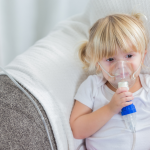What is cellulitis?
Cellulitis is a bacterial infection of the skin spreading to the tissues under your skin. It can become serious if it’s not treated quickly with antibiotics.
Cellulitis can occur on any part of your body including your face.
If you think you or someone in your care has cellulitis, it’s important to get medical attention as soon as possible. It is particularly important to get urgent medical help if:
- your face is affected
- you were bitten by an animal or human
- the redness is spreading very quickly or is very painful
- you have a fever
- you have diabetes, a weakened immune system or if you are a smoker
Sometimes, bacteria from cellulitis can spread into your blood stream. This is called septicaemia, and can trigger sepsis, which is a medical emergency.
If you have cellulitis, you can quickly become very unwell. There’s also a small chance of developing serious complications.
What are the symptoms of cellulitis?
If you have cellulitis, the affected area of your skin may be:
- red and inflamed
- very painful
- tender
- swollen or tight
- warmer to touch than surrounding skin
You may have other symptoms including:
- fever, chills, shaking or sweating
- nausea
- blisters or ulcers weeping clear, yellow or pus-like fluid
- enlarged glands (lymph nodes) near the affected area of skin
- feeling generally unwell

What causes cellulitis?
Cellulitis is usually caused by a bacterial infection. Group A streptococcus and staphylococcus aureus (‘staph’) are the most common bacteria involved. These bacteria normally live on your skin without causing any harm, but if your skin is broken they can infect your tissues and cause cellulitis. The infection usually happens when bacteria enter your skin through an ulcer, cut, scratch or insect bite. It can also happen if you already have a skin problem like eczema, psoriasis, scabies or acne, or after surgery. However, it may happen without any visible damage to your skin.
A common cause of cellulitis is scratching your skin with dirty fingernails that carry bacteria.
You’re more likely to get cellulitis if you have a skin condition that makes you itchy and are more likely to scratch.
You’re also more likely to get cellulitis if you:
- smoke
- live with obesity
- have diabetes
- have poor circulation or a weakened immune system
- have swelling in an arm or leg, such as with lymphoedema
How is cellulitis diagnosed?
Your doctor will ask about your symptoms and medical history, and then examine the affected part of your skin. They may refer you for blood tests. If there is discharge from your skin, they may take a swab to send for testing. This can help them find out which bacteria is causing your infection, and which antibiotics will be the most effective.
How is cellulitis treated?
Cellulitis is usually treated with:
- antibiotics
- rest
- elevating or raising the affected part of your body, if possible
While cellulitis is not generally contagious, it’s important to always wash your hands before and after touching the infected area.
As cellulitis can be painful, you may need pain relieving medicines such as paracetamol or non-steroidal anti-inflammatory drugs (NSAIDs). In some cases, your doctor may recommend steroids for a short time.
Your doctor or nurse might draw on your skin to outline the area of the cellulitis. This can help you and your doctor know whether the area affected is getting bigger or smaller.
Make sure you take the antibiotic exactly as your doctor prescribes. If your cellulitis doesn’t improve, your doctor may switch you to a different antibiotic. In more severe cases you may need intravenous (IV) antibiotics in hospital.
When you’re at home, placing a cool, damp cloth on the affected area can help reduce any discomfort. Keep the affected limb raised and ask to your doctor about whether you might benefit from compression stockings. Do not touch or rub the infected area.
When should I see my doctor?
You should see your doctor if you notice that an area of your skin is red, painful, swollen and warm to touch.
It’s important to diagnose and treat cellulitis early so that your condition doesn’t get worse. Cellulitis may become an emergency if left too long.
If you’ve already started antibiotics for cellulitis, you should see your doctor again if:
- the red area is getting bigger
- the area has red streaks coming from it
- there’s a lot of pus
- you have new blisters
Can cellulitis be prevented
You can reduce your risk of developing cellulitis by:
- avoiding cuts, grazes and other injuries to your skin
- maintaining good hygiene
- managing skin conditions like tinea and eczema
- maintaining a healthy weight, as obesity increases your risk of cellulitis
Some people are particularly susceptible to cellulitis, for example, if you have diabetes or poor circulation. If you are at high risk, take extra care to protect yourself with appropriate footwear, gloves and long pants when gardening or bushwalking. Look after your skin by moisturising regularly and checking your feet for signs of injury.
A common cause of infection to your skin is through your fingernails. It’s important to wash your hands frequently and to trim and clean your nails regularly.
If your skin is cut or broken:
- Rinse your wound with clean water.
- Use tweezers to pick out any dirt or debris.
- Cover your wound with a non-stick dressing.
- See a doctor or nurse if your wound is deep.
Make sure you wash your hands before cleaning or dressing any wounds to avoid introducing bacteria into the wound.
If you have ongoing swelling of your arm or leg due to a condition such as lymphoedema, you may develop cellulitis that keeps coming back. Ask your doctor about finding the cause of your swelling to help prevent this from happening. If you have cellulitis 2 or more times in a year, taking antibiotics for long periods can help.




